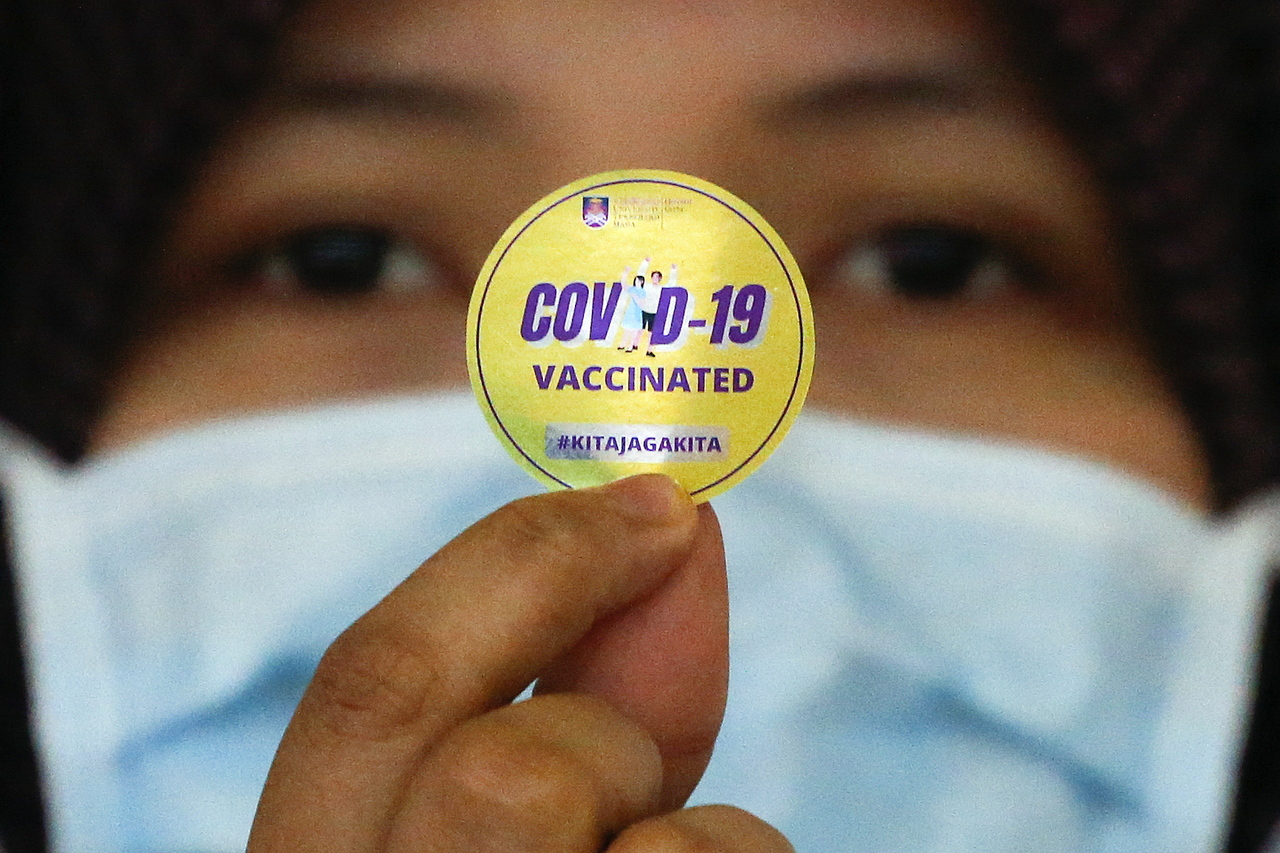Malaysia maintains target of vaccinating 80% of population by Feb 2022 despite doubts
Sign up now: Get insights on the biggest stories in Malaysia

As at Monday, almost 140,000 front-liners had been administered with the first dose of the Covid-19 vaccine.
PHOTO: EPA-EFE
KUALA LUMPUR - The Malaysian government on Monday (March 8) said it is maintaining its goal of inoculating a large majority of the population by February next year, despite concerns as to whether the country's vaccination schedule can be met.
Malaysia started rolling out its National Immunisation Programme two weeks ago, but some public health experts have asked whether it can meet its schedule due to logistical issues and vaccine hesitancy.
Malaysia hopes to achieve herd immunity against Covid-19 once it has inoculated 80 per cent of its 32 million population by February 2022.
Malaysia's Coordinating Minister for Covid-19 Immunisation, Mr Khairy Jamaluddin, said the country is not behind schedule in the ongoing phase one of inoculations which are targeted at essential front-liners.
"We expect to finish giving the first dose of the vaccine to over 500,000 front-liners listed by the end of March," Mr Khairy said on Monday.
He said that the government did not have daily inoculation targets, and that the amount of daily vaccinations conducted will be much higher in the latter stages of the programme when the vaccine will be made available to the general public.
As at Monday, almost 140,000 front-liners had been administered with the first dose of the vaccine, with daily inoculations averaging just over 10,000 doses.
But Mr Khairy said that when Malaysia moves to phase three of the vaccination programme, it could administer over 100,000 doses a day to meet its target.
Health Minister Adham Baba said he was still working towards achieving herd immunity for the Malaysian population in the latter half of this year, a more ambitious target than the scheduled February next year.
In order to help achieve this target, Datuk Seri Adham on Monday announced that private general practitioners (GP) will be allowed to take part in the programme to administer vaccines to the population at large.
The first phase, targeting front-liners, runs until April.
The second phase will begin next month - for senior citizens and individuals with certain illnesses.
Vaccines will be made available to the general population in May.
Malaysia has already secured vaccines to cover more than the herd immunity target- and on Monday it said it was adding another seven million doses of the Pfizer-BioNTech vaccine, bringing the total number of doses from Pfizer to 32 million, which covers half the Malaysian population. All the doses will be delivered this year, Mr Khairy said.
The country will also be taking delivery of 200,000 vaccine doses from Chinese pharmaceutical company Sinovac in two batches next week, to be used in the first-phase vaccinations.
Malaysia is on track to take delivery of 12 million doses of the Astrazeneca vaccine and 12 million doses of the Sinovac vaccine, which will be bottled in Malaysia.
It is also in talks with CanSino- another Chinese vaccine manufacturer- for a single-dose vaccine.
In a report in The Malaysian Insight news site on Sunday, epidemiologist Awang Bulgiba Awang Mahmud said Malaysia was slightly behind other countries in its vaccination schedule, and cited vaccine supply and low registrations as potential issues.
While the country is ramping up its vaccine portfolio, vaccine registrations have moved at a slower pace than expected. Only 3.8 million people have registered for vaccination so far - just 14 per cent of the total target.
Mr Khairy said that he expected the number to cross five million in the next couple of weeks as more people get vaccinated and confidence increases in its safety and efficacy.
Former prime minister Mahathir Mohamad on Sunday became the oldest Malaysian to receive a vaccine - with a dose of the Pfizer vaccine at the age of 96.
Dr Adham said no vaccine recipient has had a serious adverse reaction to vaccines so far in Malaysia.


